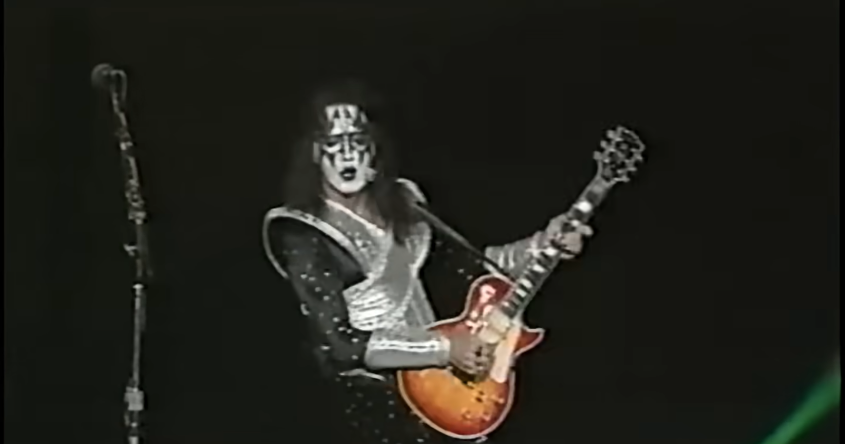I’ve slagged the 1979 Rolling Stone Record Guide many times, particularly for turning me against artists and groups I would later like, such as AC/DC (worthless ratings for their early albums), Olivia Newton-John (mostly worthless ratings) and others.
On the other hand, the Who got such a rapturous review for their LPs that I was turned on to them, and have loved them ever since.
I was more intrigued with the guide’s review of Kiss’s albums from 1974 to 1978 — rapturous in the case of Destroyer and to a lesser extent Alive! But I was especially intrigued by the one-star rating granted to their first three albums. It was sort of a backhanded slag— the sound of each was criticized as muddy and thus unlistenable, but the reviewer also recognized that their songs had exuberance, innate humour and great power riffing.
Notwithstanding my reservations about Kiss (largely from being scared of Gene Simmons’ demon makeup — I was a kid), I had to check them out. And that checking out resulted in Kiss being in my top-5 of rock groups for the past 43 years.
And that power-riffing was largely courtesy of original member Ace Frehley. In fact, I can never get enough of the story Paul Stanley tells in his autobiography of Ace showing up to audition for the group, misbehaving by interrupting other auditions, wearing differently coloured sneakers and then proceeding to apply the remaining jigsaw puzzle piece to the classic Kiss sound with his made-up-on-the-spot solo for the song Deuce. “Lethal” is what Paul called it.
Frehley proceeded to write some great songs and play some great guitar solos until he left the group (unofficially in 1982, officially in early 1983). In fact, a big factor in Calling Dr. Love being my all-time favourite Kiss song is the blazing guitar riffs at the start, and a solo so scorching that one could visualize sparks flying off Ace’s guitar as he played it.
Sadly, Ace declined to sing a lead vocal on such great early songs that he wrote as Cold Gin, Strange Ways, and Parasite (a later version with a lead vocal by Ace himself is fantastic). And one of his finest moments is a team effort with Paul — the instrumental portion of 1975’s Rock Bottom, written by Ace, has some gorgeous guitar playing, and then Paul breaks in to complete one of the most powerful Kiss songs in the group’s existence. (The album from which it comes, Dressed To Kill, was one of those characterized by the Rolling Stone guide as muddy and unlistenable, and is one of many massive inaccuracies in the book. The LP’s production is clean and punchy.)
Ace finally sang, as mentioned above, on Shock Me, and he turned out to have a great New Yawk voice. That burst of confidence led him to produce what most fans consider to be the best of the four Kiss solo albums released simultaneously in 1978 — New York Groove actually became a sizeable hit and Rip It Out is my favourite from that album.
Ace also produced some of the highlights of the next three Kiss albums — Dynasty, Unmasked and the maligned (by the group themselves) Music From the Elder, the latter of which has some fantastic guitar solos and would have had more, says Ace, if they weren’t cut by producer Bob Ezrin.
Sadly, because of a combination of substance abuse (poor Ace admitted in his autobiography that there were many times in his life he could not remember) and artistic and personal differences with Paul Stanley and Gene Simmons, he left the group, and had a pretty successful solo career. Happily, he cleaned himself up some 20 years ago.
That’s why, when it was announced that the original members of Kiss would be recipients of the Kennedy Center Honors (along with the great Gloria Gaynor), I was happy that all four were still with us and was hoping, almost praying that would be the case when the ceremony took place in December.
Of course, I was also hoping and praying that Brian Wilson of the Beach Boys would make it to his 83rd birthday, but he sadly passed a little more than a week before June 20.
That happened to Ace on Oct. 16 after a couple of falls, the second of which kept him unconscious for weeks. So, like Brian, who had a form of dementia, Ace’s passing was far from a surprise, but no less sad.
The rock world is an emptier place without both of them.
